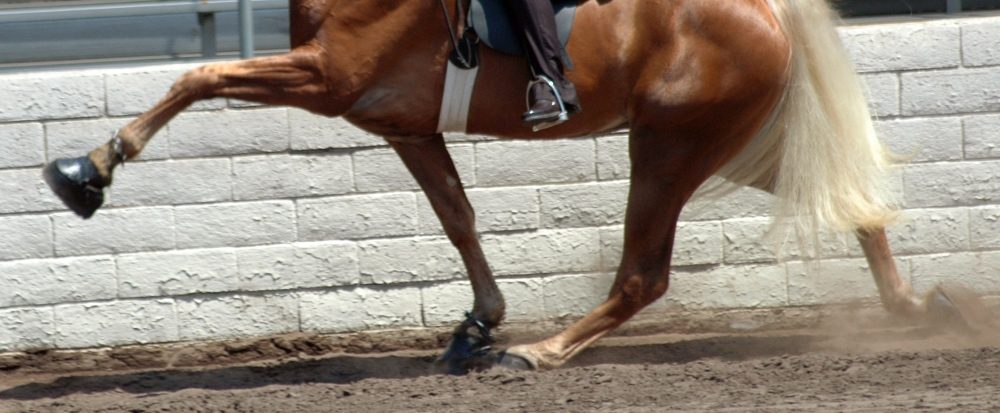Two United States senators reached across the aisle to reintroduce legislation designed to end the practice of soring show horses.
Sen. Mark R. Warner, a Virginia Democrat, and Sen. Mike Carpo, an Idaho Republican, reintroduced the Prevent All Soring Tactics Act (Senate Bill 1007), which if passes into law will amend the Horse Protection Act (HPA). The bill was introduced Wednesday, April 3, 2019, read twice and referred to the Committee on Commerce, Science and Transportation.
The bill is identical to House Bill 693, which was reintroduced Jan. 31, 2019, by Rep. Kurt Schrader, an Oregon Democrat, and Rep. Ted Yolo, a Florida Republican. Both Schrader and Yolo are veterinarians.
Soring is the intentional application of substances or devices to horses’ limbs to inflict pain in order to achieve an exaggerated high-stepping gait in show rings. The U.S. Department of Agriculture (USDA) Inspector General found that the practice persists despite inspections before shows, exhibitions, sales or auctions.
“Horses have been part of our Commonwealth’s history and culture since the settling of Jamestown, and like all animals, they deserve to be treated with care and compassion,” Warner says. “The PAST Act will further protect these animals from the cruel practice of inflicting deliberate pain and suffering for show purposes.”
The bills aim to prohibit the use of action devices, “weighted toe, pads, wedge, hoof band, or other device or material at a horse show, horse exhibition, or horse sale or auction that is placed on, inserted in, or attached to any limb of a Tennessee Walking Horses, racking horses, Spotted Saddle Horses … to artificially alter the gait of such a horse; and is not strictly protective or therapeutic in nature.”
The legislation defines action device as “any boot, collar, chain, roller, or other devices that encircles or is placed upon the lower extremity of the leg of a horse in such a manner that it can rotate around the leg or slide up and down the leg, so as to cause friction; or strike the hoof, coronet band, fetlock joint, or pastern of the horse.” The legislation does not consider soft rubber or soft leather bell boots or quarter boots that are used to protect the foot as an action device.”
Both bills also intend to establish a new system for inspecting horses for soring by eliminating the self-policing. It would require the USDA to assign a licensed inspector when the show’s management indicates its intent to hire one. Licensed or accredited veterinarians would be given preference for these positions.
If enacted into law, the penalties will be increased from a misdemeanor to a felony. If convicted, a violator could be sentenced to up to 3 years incarceration and levied fines ranging from $3,000 to $5,000 per offense. Three-time violators would be permanently disqualified from participating in horse shows, exhibitions, sales or auctions.
“I support the humane treatment of all animals and the responsible training of horses,” Crapo says. “I remain committed to ending the cruel practice of soring, and will continue to promote enforcement of current animal welfare laws.”
Warner and Crapo teamed up in the 115th Congress to introduce the same legislation (Senate Bill 2957) in 2018. The bill died in committee. Previous versions of the legislation were introduced by Sen. Kelly Ayotte, a New Hampshire Republican, and cosponsored by Warner in 2014 (Senate Bill 1406) and 2015 (Senate Bill 1121). Yoho and Schrader have introduced the same legislation in 2015 (House Bill 3268) and 2017 (House Bill 1847). Rep. Ed Whitfield, a Kentucky Republican, and Rep. Steve Cohen, a Tennessee Democrat, introduced the legislation (House Bill 1518) in 2013.
The USDA’s Animal and Plant Health Inspection Service (APHIS) attempted to enact a rule to amend the HPA that incorporated some aspects of the PAST Act in 2016-17. However, the Obama administration failed to publish it into the Federal Register before the end of the president’s term. The Trump administration withdrew all unpublished rules and sent them back to the relevant agencies for review. The final rule amending the HPA has not been resurrected.








